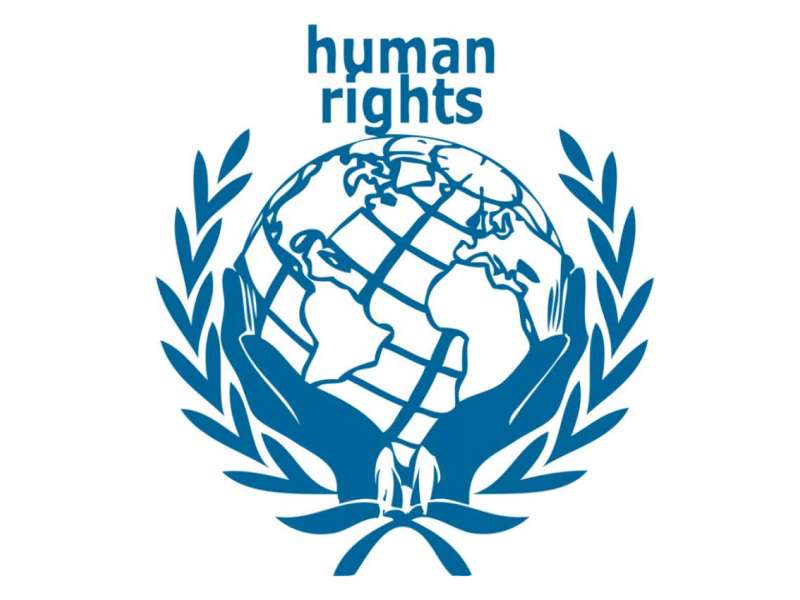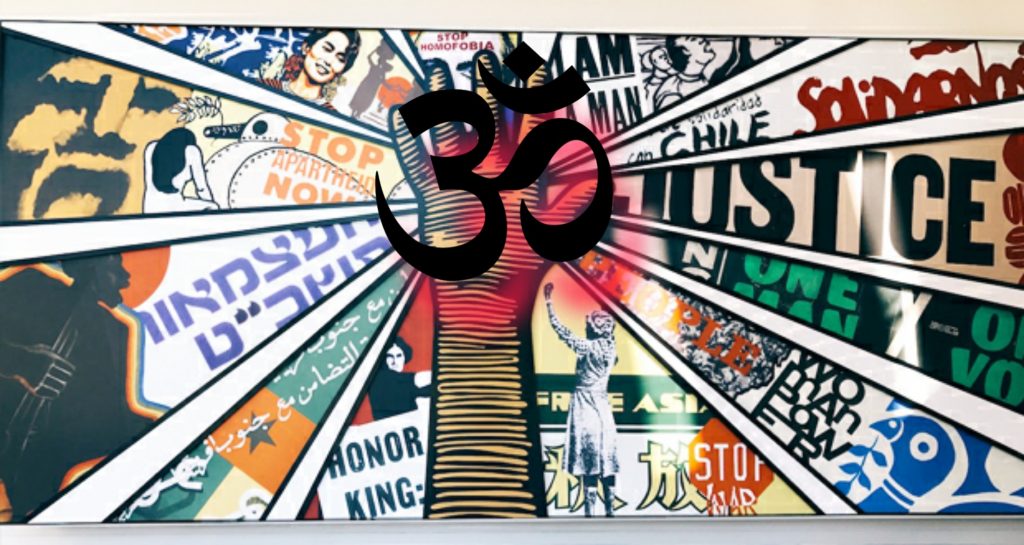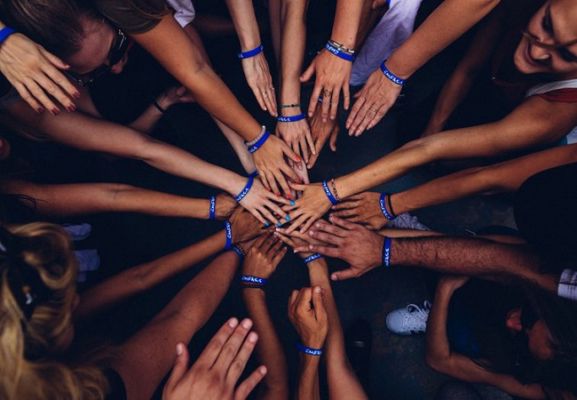Summary: The Universal Declaration of Human Rights were the outcome of two world wars in which the world faced strong loses of life and humanity. In 18th and 19th Century rise of consumerism undoubtedly changed the dynamics of the world where products were created on the demand of market or market was created after creating a product. Though UDHR have been passed and ratified by majority of the countries, yet it seems that human right agenda has not been taken care properly across the globe and the result is the modern world is divided in the name of sex, race, class and religion.
Indian philosophy was always duty driven considering all animate and inanimate object of the earth as manifestation of god. It does not support the idea of rights being alienated to the concept of duties. Karma is considered as one’s highest duty in Hindu tradition. In Hindu Tradition Human dignity is an integral part of Right to life and hence the Hindu Notion of Human Rights is more broad and inclusive and it has place of all creations of God from nature to universe. It emphases a lot about duties and believes that rights of individual can be ensured only if everybody is committed towards its duties for humanity and sees life beyond physical existence and includes entire cosmos.
Whole world will have to realize that present model of development cannot be sustainable as it based upon conflicts, greed, individualism and economic expansion. Ancient Hindu philosophy can definitely help in developing and enriching the International Human Rights jurisprudence, which could be more realistic, acceptable and applied.
The age of earth is 4.5 billion years and modern civilization is about 6,000 years old. Human beings are considered as the superior most creature of the nature and thus believed to be the trustees of the earth.
To achieve the purpose of human life a peaceful existence is required where all the basic needs of life of every individual should be satisfied. Deprivation and Conflicts is the biggest enemy in leading a justiciable life. Unfortunately by the passage of time human civilization has seen rising conflicts.
In 18th century industrial revolution and increasing imperialism created a new mercenary capitalist world whose first preference was making more and more money. Through colonization colonies were set up for the political and economic benefit of the colonizing country and slowly they started taking over other areas, to expand their own political and economic interests. It changed the entire dynamics of the world.
Fall of India’s tallest intellectual and cultural personality and rise of industrial revolution shifted eco-centric model of sustainability based upon need towards the anthropocentric model of development based upon destruction and greed. Trusteeship of earth converted into ownership and automatically mighty countries and mighty group of people took the license to exploit nature and weaker. This 20th century modern colonization model based upon consumerism and capitalism encouraged exploitation of natural resources and migration of people. Slowly countries and societies started dividing on the basis of economy and two prominent groups came forward in the form of Rich and Poor.
Imperialism, World Wars and Human Rights
Imperialism that is the domination of one country or people over other dramatically changed in the latter half of 19th century. After industrial revolution European nations started searching new markets and trade partners and established settlement in America, Africa, Middle East, China and India. Advancement in science and technology accelerated their pace of growth. Increasing number of businessmen and bankers had excess capital to invest. In search of cheap labor and steady supply of raw materials industrialized nations started maintaining firm control over unexplored areas.
The expansion policy promoted the superiority of Western society over so called industrially “backward” societies. Imperialism adversely affected the native culture and local industries. Natural wealth of these colonies was funneled to these western societies and left the colonies in poor deprived state. By 1900 western world captured almost entire globe and forced colonial people to give up their own culture and accept the western one. It also contributed to tension among the Western powers and increasing rivalries contributed to the hostile conditions that led to World War I in 1914.
The increasing competition and desire for greater empires led to an increase in confrontation that helped push the world into World War II, which was an uneasy 20-year hiatus, of the disputes left unsettled by World War I. The 40,000,000–50,000,000 deaths incurred in World War II make it the bloodiest conflict, as well as the largest war, in history.
Mass killing of millions of people compelled whole world to think about the value of Human Life. The importance of natural law was realized and equality, freedom and justice were re-established as essential human rights. Thus United Nations came into the existence in 1945.
Need of UDHR

United Nations General Assembly adopted The Universal Declaration of Human Rights (UDHR) on 10 December 1948. The Declaration consists of 30 articles affirming an individual’s rights although not legally binding in themselves. Every year 10th December is celebrated as International Human Rights Day. The purpose of this day is to make people stand up for equality, dignity and justice.
The UDHR arose as a constellation from the black hole created after Second World War with a purpose to make the world a better place to live. UDHR recognizes inherent dignity and equal and inalienable rights of all members of the human family as the foundation of freedom, justice and peace in the world,
Celebrating a single day as a Human rights day indicates that modern civilization has not given ample respect to these natural rights of every individual.
Why Human Rights Model is Castle in the Air
UDHR were the outcome of two world wars in which the world faced strong loses of life and humanity. In 18th and 19th Century rise of consumerism undoubtedly changed the dynamics of the world where products were created on the demand of market or market was created after creating a product. Introduction of Plastic money and lust of economic expansion of powerful nations converted whole world into a global market where rich nations grabbed poor nation for their money, market and natural resources. It created a more uneven world where exploitation percolates from developed to poor nations and from rich to poor class.
Though UDHR have been passed and ratified by majority of the countries, yet it seems that human right agenda has not been taken care properly across the globe and the result is the modern world is divided in the name of sex, race, class and religion. We have created a right driven society which is silent about its duty towards other and the result is there is overall degradation of human rights and human values.
Terrorism, Mass displacement of population, hate crimes, environmental degradation, and increasing sexual violence and over dependency on technology may be considered as major threat to human rights. According to Global Terrorism Data Base from 2000 to 2016, 170,000 terrorist attacks have been reported, which has impacted 163 countries and 99.7% of the population. As per data of UNHCR unprecedented 70.8 million people around the world have been forced from home. There are also millions of stateless people who have been denied a nationality and access to basic rights such as education, healthcare, employment and freedom of movement.
In a world where nearly 1 person is forcibly displaced every two seconds as a result of conflict or persecution, discussion over human rights seems eyewash. According to United Nations Office for Disaster Risk Reduction from 1998-2017 disaster-hit countries also reported direct economic losses valued at US$ 2,908 billion, of which climate-related disasters caused US$ 2,245 billion or 77% of the total.
Post industrial revolution world has also seen rising economic inequality worldwide. Top 10% of global population is benefiting disproportionately. Economic inequality is a de-stabilizing force, creating distrust and factional politics. Rising inequality between and within countries has played a major role in the global inequality story since industrial revolution.
Organizations like WTO were created to expand the agenda of economic expansion of these developed countries into third world nations. Many countries of the world were destabilized just to serve the economic interest of US and the fellow countries. Human Rights institution became a tool to tighten the noose of developing countries by developed nations. Consumerism came up as the biggest threat to the model of sustainable development as it anti-thesis of the sustainable developments goals, which is the heart of the Human rights.
It is a bitter truth that human right treaties could not improve the wellbeing of the people, but the human rights movements has yet to acknowledge its failure. So the result is Human Right became bigger issue for discussion than implementation.
Indian Model of Human Rights

The fall of India and shifting of center of global power from wisdom centric India to money centric west is primarily responsible for creating a divisive world based upon differences and conflicts. Increasing inclination of human interest from duties to right, from need to greed, from spirituality to religion and from collectivism to individualism is the main reason of rising conflicts and discrimination.
Indian philosophy was always duty driven considering all animate and inanimate object of the earth as manifestation of god. It does not support the idea of rights being alienated to the concept of duties. Karma is considered as one’s highest duty in Hindu tradition.
Indian society was based upon “Dharma” which has no exact corresponding translation in English language. It is a fundamental concept that is treated as a cosmic law and order that relates to the orders and customs that make life and a universe possible. It connotes “Duty to right way of living” whose fundamental is to protect weak against strong and to develop a strong sense of morality.
Hinduism does not believe in the concept of localized state interest but it talks about Universal peace, happiness and equality.
Svetasvatara Upanishad says- ‘Amritasya Putrah Vayam’. Man is treated as the ‘son of the immortal’, where immortal is used for the almighty. Hinduism does not regard human as mere material beings but an element of spirituality and divinity is attributed to all the human beings. On this aspect, all human beings are kept on the same footing.
The most basic concept of equality has been beautifully mentioned in Vedas which is defined as follows-“No one is superior inferior all should strive for the interest of all and should progress collectively”.
In Hindu Tradition Human dignity is an integral part of Right to life. Hinduism by laying stress on universal brother-hood rejects hatred and emphasis on the spiritual and eternal growth for all human beings to promote the concept of human dignity.
Non-discrimination, which is the core principle of International human Right convention, was pre-eminent in the ancient Hindu texts. It is believed that every human body consist an aatma or the soul that travels from one life to the other. ‘Aatma’ is regarded as the integral part of the divine whole- ‘parmaatma’- which is constituent of ‘param’ (penultimate) and ‘aatma’ (soul). A human body should be identified on the basis of its soul or aatman and not on the basis of physical existence. That is to say that the ‘aatma’ had been connoted under Indian legal philosophy, an indiscriminatory stature.

Further emphasizing on equality Rig Veda says:
“Ajyesthaaso Akanisthaasa Yete Sam Bhraataro Vaavrudhuh Soubhagaya” – Mandala-5, Sukta-60, Mantra-5
‘No one is superior or inferior; all are brothers; all should strive for the interest of all and progress collectively’.
Rig Ved talks about three rights that are civil in nature i.e. Tan (body), Skridhi (dwelling place) and Jibhasi (life), thereby relating to the right to physical liberty, right to shelter and right to life as we know them today. Atharveda also provides for Human Rights such as right to food and water:
“ Samani Prapaa Saha Vonnabhagah Samane Yoktre Saha vo Yunajmi Aaraah Nabhimivaabhitah”
“All have equal Rights to articles of food and water. The yoke of the chariot of life is placed equally on the shoulders of all. All should live together in harmony supporting one another like the spokes of a wheel of the chariot connecting its rim and hub”. –( Samjnana Sukta).
Subsequently the importance of Human Rights was mentioned in several Hindu Texts. In this regard Kautilya beautifully sum up the concept of welfare state in Arthshsshtra:
“Prajasukhe Sukham Rajnah Prajanam cha Hite Hitam Naatmapriyam Hitam Rajnah Prajanaam tu Priyam Hitam”
“In the happiness of the subjects lies the happiness of the King; in their welfare his welfare. The King shall not consider what pleases himself as good; whatever pleases his subjects is only good for him”
He also says that – Arth and Kama are also essential but they should be acquired according to dharma.
Manu, who firstly formulated civil and legal rights, also added economic rights into it. There are several stories in Puranas and Panchtantra which reveals that vedic society was very much committed towards human rights. The same concept was further carry forwarded by Jainism and Buddhism.
The same was inscribed by Samrat Ashoka mentioning- “All men are my children and just desire for my children that they may enjoy every kind of prosperity and happiness with in this world and in the next, as also as I desire the same for all men”.
India is the country where happiness was regarded as one of the highest fundamental right. Brihadāraṇyaka Upanishad says:
“Sarve bhavantu Sukhinah, Sarve Santu Niramayah Sarve Bhadrani Pashyantu Ma Kaschid Dukhabhag Bhavet”
“Let all be happy Let all be free from diseases Let all see auspicious things Let nobody suffer from grief”
Thus it seems that Hindu Notion of Human Rights is more broad and inclusive and it has place of all creations of God from nature to universe. It emphases a lot about duties and believes that rights of individual can be ensured only if everybody is committed towards its duties for humanity and sees life beyond physical existence and includes entire cosmos.
The most unfortunate part of modern day Knowledge system including theories on international Human rights jurisprudence is they never took into account the contribution of Hindu Philosophy. A country which ruled the world for thousands of years through its wisdom without destroying any civilization and giving respect to all thoughts and faiths, which respected the rights of every living being and remained most advanced civilization of the world without destroying nature and universe was deliberately ignored by modern Indian and Western thinkers and policy makers. Whole world will have to realize that present model of development cannot be sustainable as it based upon conflicts, greed, individualism and economic expansion. Ancient Hindu philosophy can definitely help in developing and enriching the International Human Rights jurisprudence, which could be more realistic, acceptable and applied.
(The author is an Assistant Professor, Faculty of Law, Delhi University)
